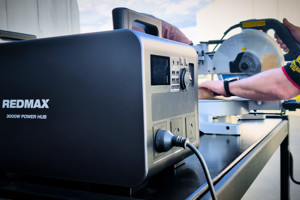Battery 101: Car battery maintenance
Car battery maintenance is an essential aspect of vehicle ownership. The battery is responsible for providing the initial energy needed to start the car’s engine, and it also powers the electrical components in the car when the engine is off.

A well maintained battery can ensure reliable performance, long service life, and also help prevent unexpected breakdowns. In this article, we will discuss various car battery maintenance tips, including how to check and maintain your battery’s health, and common issues that can affect your car battery’s performance.
Understanding Your Car Battery
Before we dive into maintenance tips, let’s take a closer look at how a car battery works. A typical car battery is a lead acid battery, which consists of a plastic case, lead plates, sulfuric acid, and other components.
The battery’s lead plates are submerged in the acid solution, and when a current flows through the battery, the chemical reaction between the acid and the plates produces electricity. The battery’s voltage determines its capacity to provide energy, and the unit of measurement for a battery’s voltage is volts (V).
Signs of a Failing Battery
It is very important to know the signs of a failing battery so that you can take action before your car leaves you stranded. Here are some of the most common signs of a failing battery:
- Slow Cranking: If your car is slow to start or takes longer than usual to turn over, it could be a sign that your battery is starting to fail.
- Battery Warning Light: If the battery warning light on your dashboard is illuminated, it’s a clear sign that there is a problem with your battery or the charging system.
- Corroded Terminals: Corroded battery terminals can prevent your battery from delivering power to your car’s electrical system.
Testing Your Battery’s Health
If you suspect that your battery is failing, it’s important to test its health. There are a few ways to test your battery’s health:
- Visual Inspection: Check for any signs of corrosion or damage to the battery terminals.
- Battery Voltage Test: A battery voltage test measures the voltage of your battery. This test can be performed using a multimeter.
- Battery Test: Testing your battery using an electronic battery tester will determine the health of your battery.
Car Battery Maintenance Tips
- Keep your battery terminals clean: Dirty or corroded terminals can impede the flow of electricity from the battery to the car’s electrical system. To clean the terminals, use a wire brush or a battery terminal cleaning tool to remove any corrosion. You can also use a solution of baking soda and water to help remove stubborn corrosion. Make sure to disconnect the battery cables before cleaning the terminals.
- Inspect the battery for physical damage: Check the battery for any signs of physical damage, such as cracks or bulges in the case. Physical damage can cause leaks or other problems that can lead to battery failure.
- Test the battery’s voltage: A multimeter or a battery tester can be used to measure the battery’s voltage. This must be tested after the engine has been switched off for at least 30 minutes. A fully charged battery should have a voltage of around 12 V. If the voltage is below 12.4V, the battery may need to be recharged. If the battery voltage drops below 12.0V, it may be time to replace the battery.
- Keep your battery charged: If your car is not driven regularly or only driven short distances, the battery may not have enough time to recharge fully. Over time, this can shorten a battery’s life To avoid this, consider using a battery maintainer or trickle charger to keep the battery charged when the car is not in use.
- Check the battery’s age: Car batteries typically last between three to five years, depending on usage and climate. If your battery is approaching the end of its lifespan, it may be time to replace it, even if it still appears to be functioning correctly.
- Avoid deep discharges: Deep discharges will damage your starting battery and shorten its lifespan. Try to avoid leaving the lights or other electrical components on when the engine is off. If you do accidentally leave something on, use a battery charger to recharge the battery. Jump starting your vehicle and driving for 20 minutes will not charge the battery.
- Store your battery correctly: If you need to store your car or battery for an extended period, make sure to remove the battery and store it in a cool, dry place.
Common Car Battery Problems and Solutions
- Dead Battery: A dead battery is one of the most common car battery problems. A battery can die for several reasons, such as leaving your lights or other electrical components on for an extended period, a faulty alternator, or an aging battery. If you turn the key and hear clicking noises, or the engine fails to start, it may be a sign that your battery is dead.
- Corroded Battery Terminals: Corrosion on the battery terminals can impede the flow of electricity from the battery to the car’s electrical system. Corrosion can occur due to a build up of battery acid on the terminals, which can lead to poor electrical conductivity and damage to the terminals.
- Overcharging: Overcharging occurs when your car’s charging system produces too much voltage and overcharges your battery. Overcharging can cause damage to your battery, which can lead to a reduced lifespan and poor performance.
- Undercharging: Undercharging is the opposite of overcharging and occurs when your car’s charging system does not produce enough power to charge your battery fully. Undercharging can lead to a depleted battery, which can cause poor performance and a reduced lifespan.
- Aging Battery: Car batteries typically last between three to five years, depending on usage and climate. As the battery ages, its capacity to provide energy decreases, and it may become less reliable.
In conclusion, car battery maintenance is essential for the smooth functioning of your vehicle. Neglecting your car battery can lead to decreased performance and even leave you stranded on the side of the road. However, by following some simple tips, you can extend the life of your car battery and save yourself from potential troubles down the road.
Remember that prevention is always better than cure, and by taking proactive steps to maintain your car battery, you can avoid costly repairs and replacements. So, make sure to prioritize car battery maintenance in your routine car care, and enjoy the peace of mind that comes with a well-maintained vehicle.
The experts at R&J Batteries are always here to assist with any battery tests or maintenance as required. You can drop into one of our stores for a free battery test, or if your battery has reached the end of its life, our team are here to help find you the best suitable replacement for your make and model from our range of world class battery brands.



